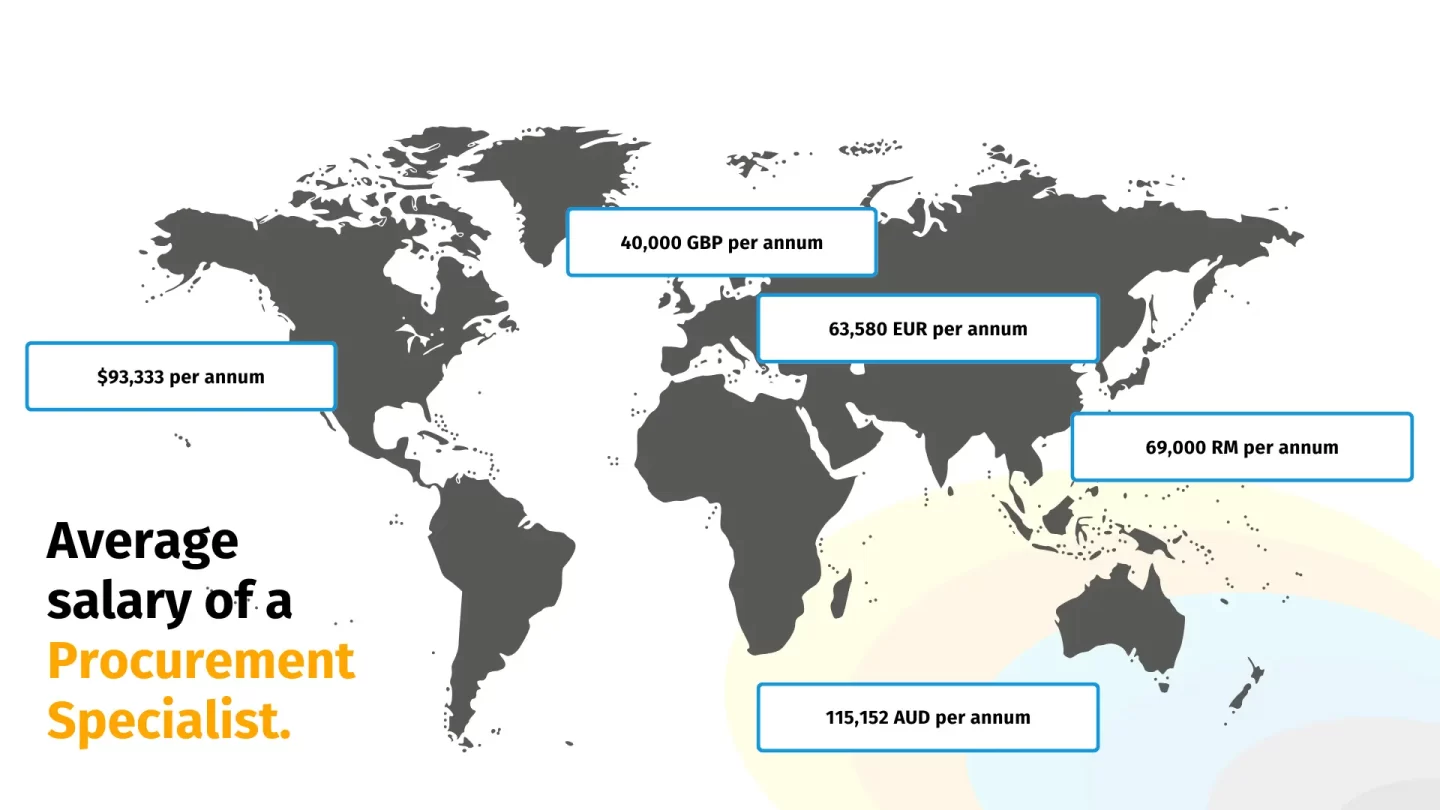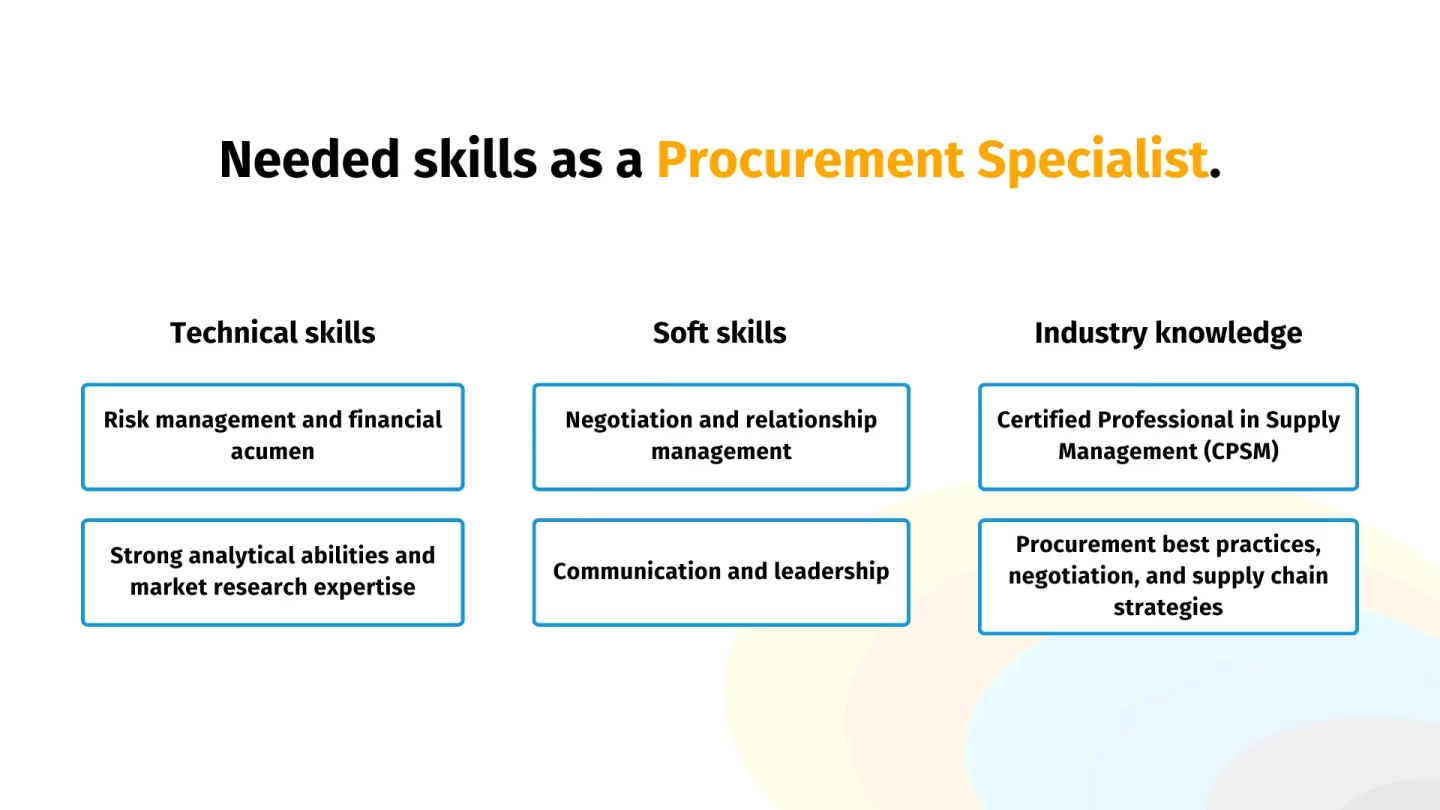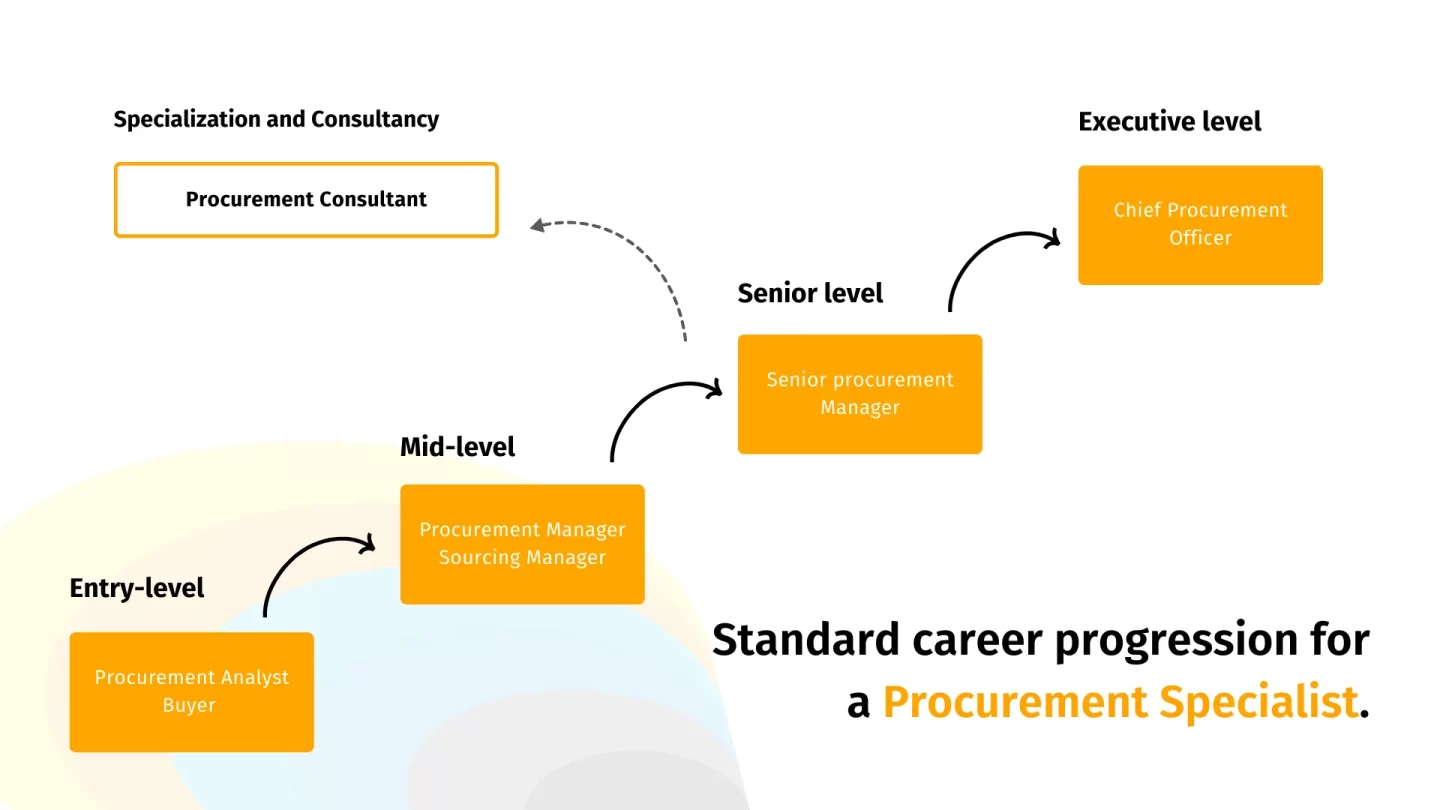Thinking about pursuing a career as a Procurement Specialist? This guide offers key information and practical advice to help you get started in this exciting profession.
Why work as procurement specialist?
A Procurement Specialist is a key member of the business team, responsible for maintaining supplier relationships and facilitating essential purchases. It’s a strategic role that requires strong analytical skills, relationship-building, and a deep understanding of market trends. If you enjoy working in a fast-paced environment where your decisions directly impact a company’s success, then procurement could be the perfect field for you.
What Does a procurement specialist at an energy company do?
A Procurement Specialist at an energy company focuses on sourcing and securing the essential equipment, materials, and services needed to support energy projects. This could range from purchasing large-scale infrastructure components like turbines and pipelines to securing specialized services such as engineering support or field operations. They ensure that all contracts align with industry regulations, safety standards, and environmental considerations.
Additionally, they manage supplier relationships to negotiate favourable terms, control costs, and ensure timely delivery. In the energy industry which emphasize efficiency, safety, and sustainability, the procurement specialist keeps operations rerunning smoothly and profitably.
Salary and Benefits

The salary for Procurement Specialists varies globally, depending on location and industry.
In the United States, the average Procurement Specialist is $93,333 as of October 01, 2024, but the salary range typically falls between $83,597 and $104,170.
In Europe, such as Germany, the average salary is approximately €63,580 per year . Entry-level positions with 1-3 years of experience earn around €46,310 annually, while senior-level specialists with over 8 years of experience can earn up to €77,940.In the UK, the average salary is £40,000.
In the Middle East, a Procurement Specialist working in United Arab Emirates will typically earn around 189,300 AED per year, and this can range from the lowest average salary of about 85,760 AED to the highest average salary of 301,800 AED.
Benefits typically include health insurance, retirement plans, and bonuses based on performance. Many procurement roles offer additional perks such as professional development opportunities, flexible working arrangements, and global travel, depending on the company and project scope. Compensation packages often reflect the strategic importance of the role within organizations.
Procurement specialist skills and requirements

As a Procurement Specialist, a combination of both soft and hard skills is essential for success. On the soft skills side, negotiation and relationship management are key, helping to build strong supplier partnerships and secure favorable contracts. Communication and leadership are equally important for managing teams and collaborating across departments. On the hard skills front, strong analytical abilities and market research expertise help in making data-driven decisions, while risk management and financial acumen ensure smooth and cost-effective procurement processes. Both skill sets are crucial for optimizing procurement operations.
Responsibilities of a procurement specialist
As a Procurement Specialist, several key responsibilities are :
Supplier Management
The ability to identify and evaluate suppliers that align with the company’s needs based on cost, customer service, and delivery speed. This also involves managing long-term contracts and maintaining strong supplier relationships.
Quality Assurance
Ensuring that suppliers consistently meet organizational standards by conducting thorough research, evaluations, and performance checks, often through trial runs before committing to large contracts.
Inventory Control
Skill in managing inventory levels to ensure that all products and materials are delivered safely, on time, and in accordance with company requirements.
Market Research
Staying updated on industry trends and developments is crucial for making informed purchasing decisions, as it helps Procurement Specialists select the best suppliers and anticipate shifts in the market.
Compliance Knowledge
A strong understanding of local and federal regulations related to data, environmental standards, labor laws, and trade is essential to ensure all suppliers are compliant and minimize risk to the company.
Locations of procurement specialist jobs
The global demand for skilled Procurement Specialists in supply chain management is increasing. These roles are commonly found in sectors like energy, manufacturing, technology, and retail. Many procurement positions are concentrated in major business hubs such as New York, London, Singapore, Dubai, and other cities with strong commercial and industrial activity. However, opportunities also exist in more localized areas, especially in industries requiring specialized procurement, such as oil and gas, construction, or renewable energy projects.
Career progression and growth opportunities

A career in procurement offers diverse paths for progression.
Starting at the entry level with roles like Procurement Analyst or Buyer, individuals build a foundation in vendor management, contract negotiation, and market research. As they gain experience, professionals advance to mid-level positions such as Procurement Manager or Sourcing Manager, where they lead teams, negotiate high-value contracts, and oversee procurement strategies.
For those pursuing leadership, executive roles like Vice President of Procurement or Chief Procurement Officer are achievable, managing departments, shaping company-wide strategies, and overseeing acquisition programs.
Specialization is key to growth. Focusing on areas like strategic sourcing or supplier development opens doors to advanced opportunities. Certifications in supply chain management, such as CPSM or CSCP, along with continuous learning, greatly enhance career prospects. Moreover, experienced professionals may transition into consultancy, offering their expertise on complex projects and procurement strategies, further expanding career paths.
Work environment and culture
Procurement Specialists typically work in structured corporate environments, collaborating closely with teams in finance, supply chain, and operations. The role is a balance of desk-based tasks—such as analyzing contracts and managing procurement data—and active engagement with suppliers through meetings, negotiations, and industry events.
The role of a Procurement Specialist is typically full-time, but deadlines or market shifts can lead to extended hours. Increasingly, remote work and virtual collaboration with global suppliers are common due to digital procurement platforms.
Procurement Specialists often enjoy the dynamic nature of their work, where strategic thinking and adaptability are essential to responding to changing market conditions and organizational needs. The job offers opportunities for career growth, making it both demanding and rewarding.
How to Become a procurement specialist
To become a Procurement Specialist, start by earning a degree in areas like business, economics, or supply chain management. Hands-on experience is key, so internships or entry-level roles help you build practical skills. As you progress, you might consider pursuing a master’s degree, such as an MBA, to access higher-level roles.
Certifications like Certified Professional in Supply Management (CPSM) or Certified Supply Chain Professional (CSCP) can enhance your expertise. These certifications demonstrate your understanding of procurement best practices, negotiation, and supply chain strategies, making you more competitive in the field.
Networking through professional organizations and staying updated on industry trends through continuous learning, such as workshops or certifications, are also essential for career growth.
Benefits of working a procurement specialist
A career as a Procurement Specialist offers a number of advantages. It offers a strong sense of purpose, with the knowledge that your work directly influences the success of the organisation. You are instrumental in optimising costs, improving efficiency and driving profitability. The dynamic nature of procurement ensures that no two days are the same, maintaining an engaging and intellectually stimulating work environment. Furthermore, the role develops negotiation skills, provides a global perspective through cross-border sourcing, and offers the opportunity to make a tangible impact by doing sustainability and ethical business practices.
Drawbacks of working as a procurement specialist
While working as a Procurement Specialist offers many rewards, there are also some drawbacks to consider. The role can be high-pressure, especially when managing tight deadlines or large contracts where mistakes can be costly. Market fluctuations and supply chain disruptions may also require quick adjustments, which can create stress. Additionally, the repetitive nature of certain tasks, like data analysis and report generation, can become tedious. Long hours during peak periods, such as end-of-quarter pushes, can affect work-life balance, adding to the challenges of the role.
Current procurement specialist jobs
At WTS Energy, we connect skilled procurement specialists with job opportunities in the energy sector. These roles typically involve managing supplier relationships, negotiating contracts, and ensuring the efficient sourcing of goods and services essential to energy and infrastructure projects. For more details on current procurement roles, visit our job page.
